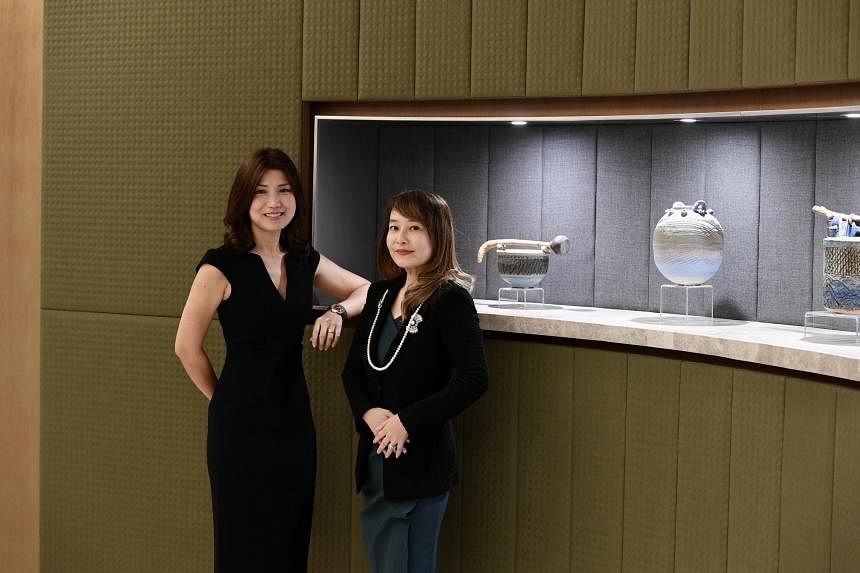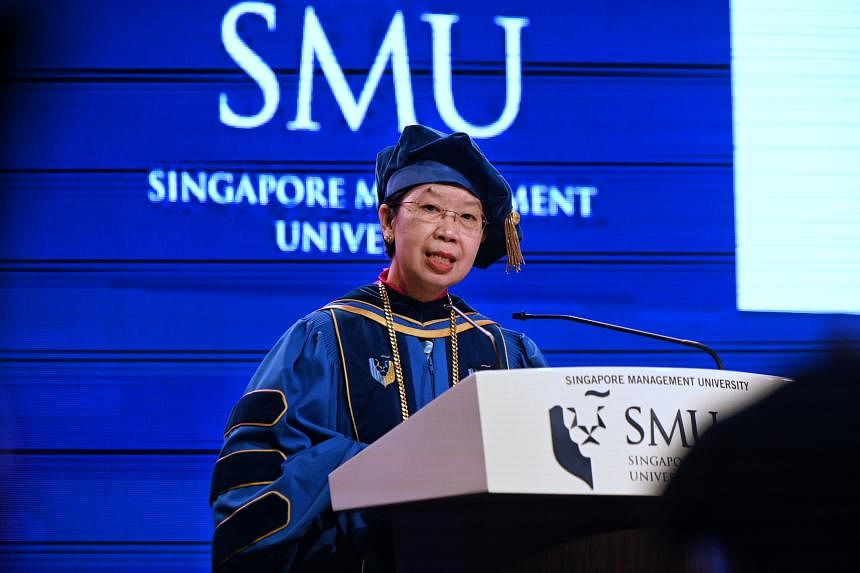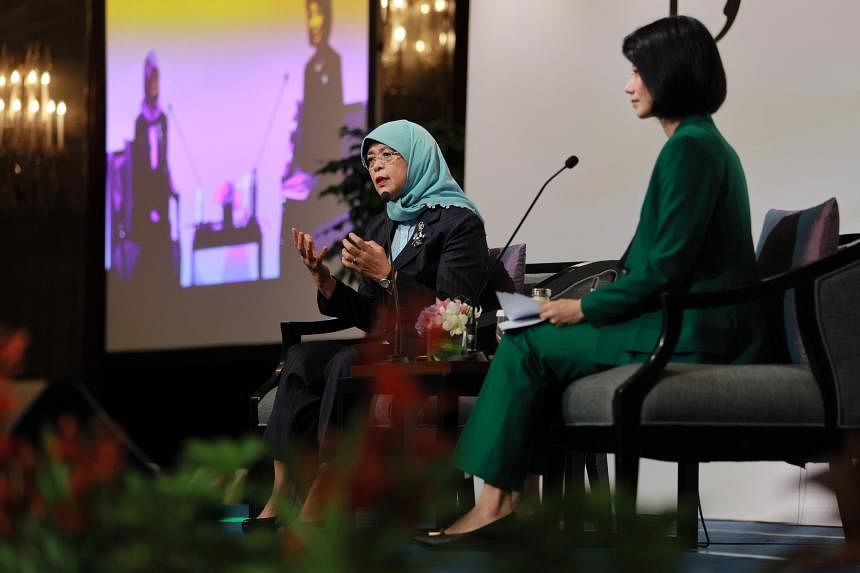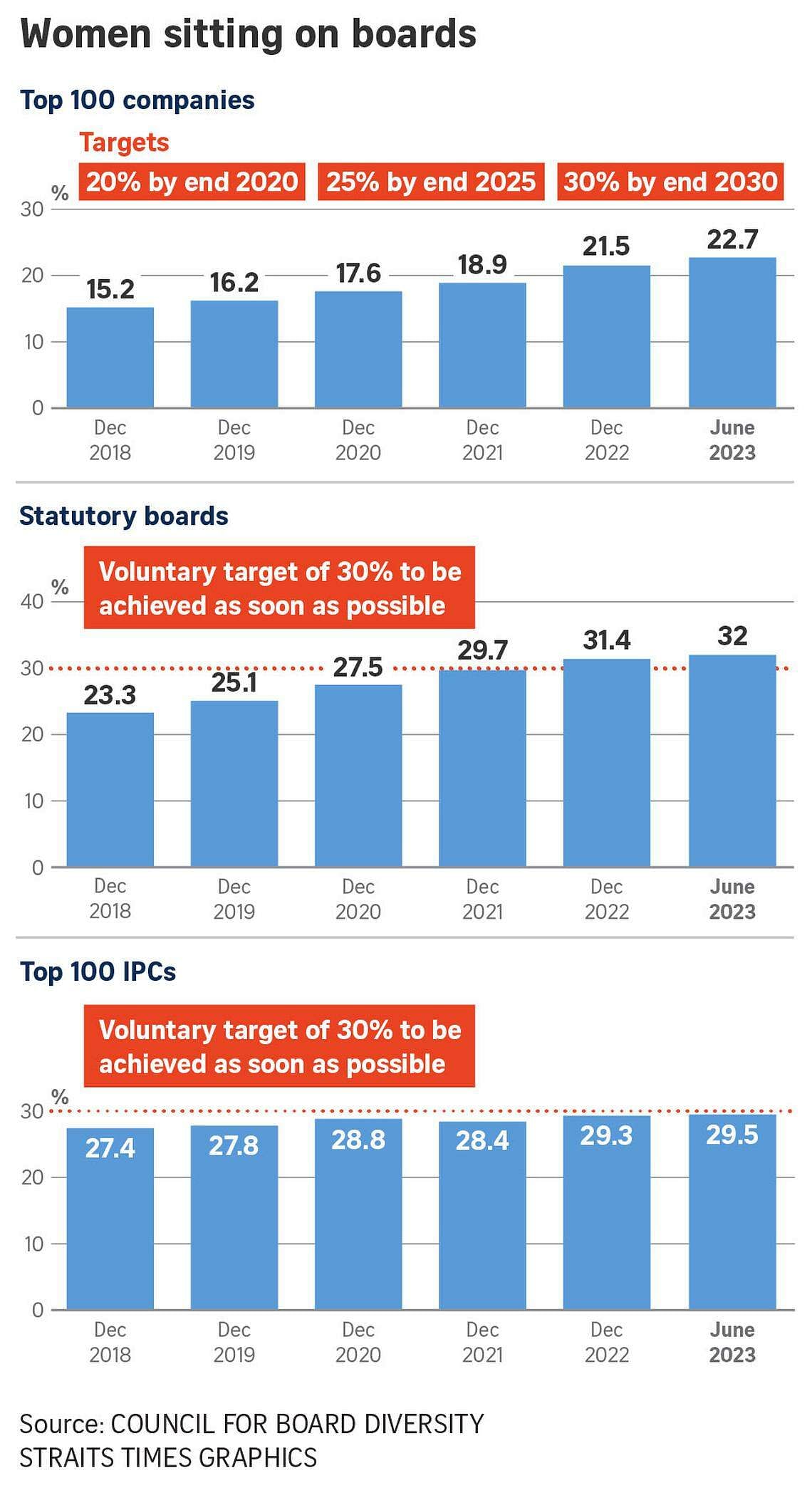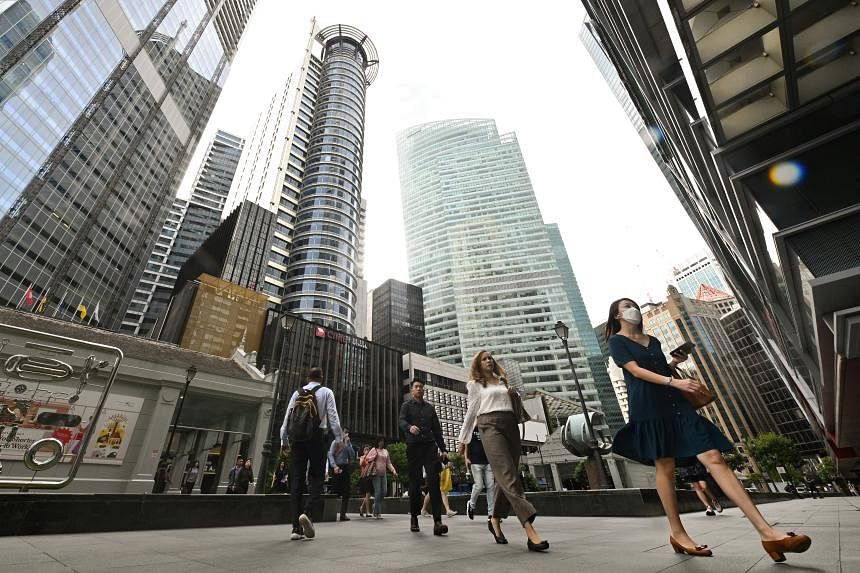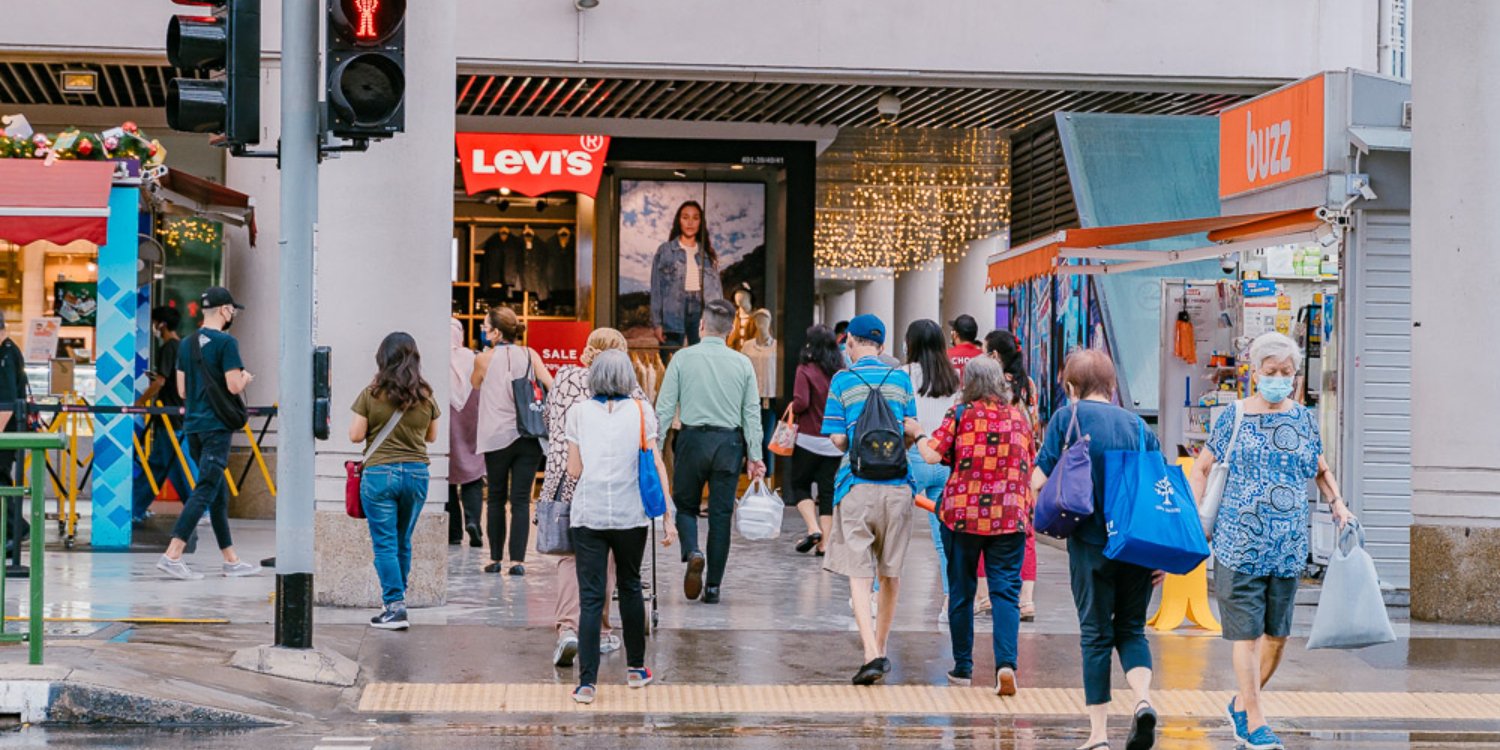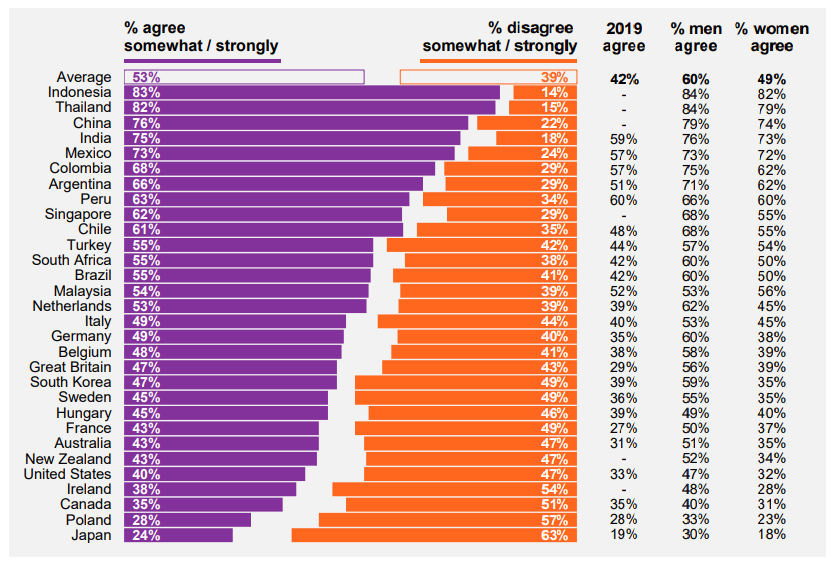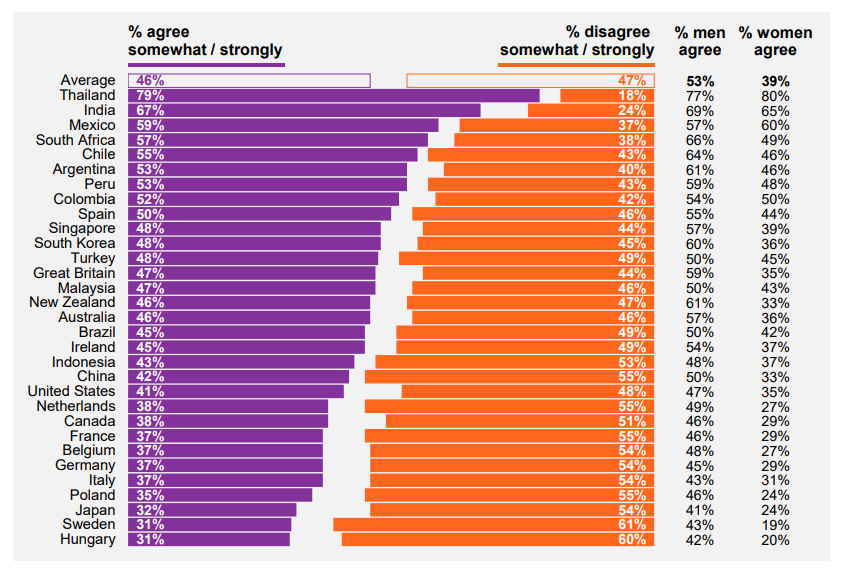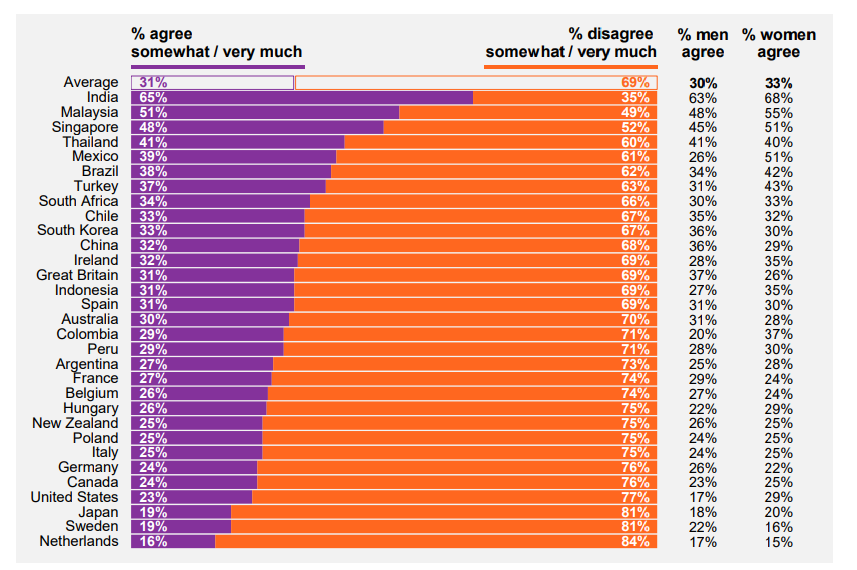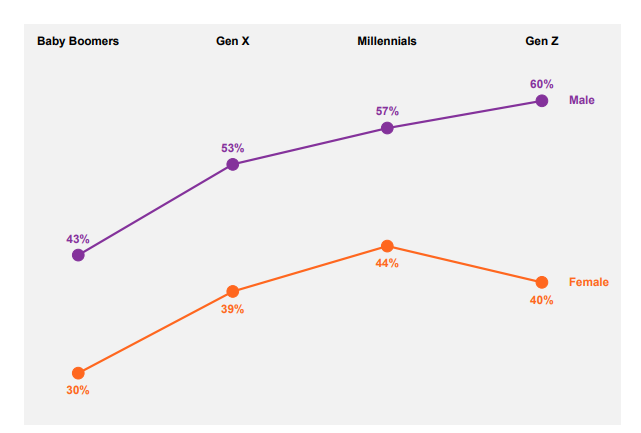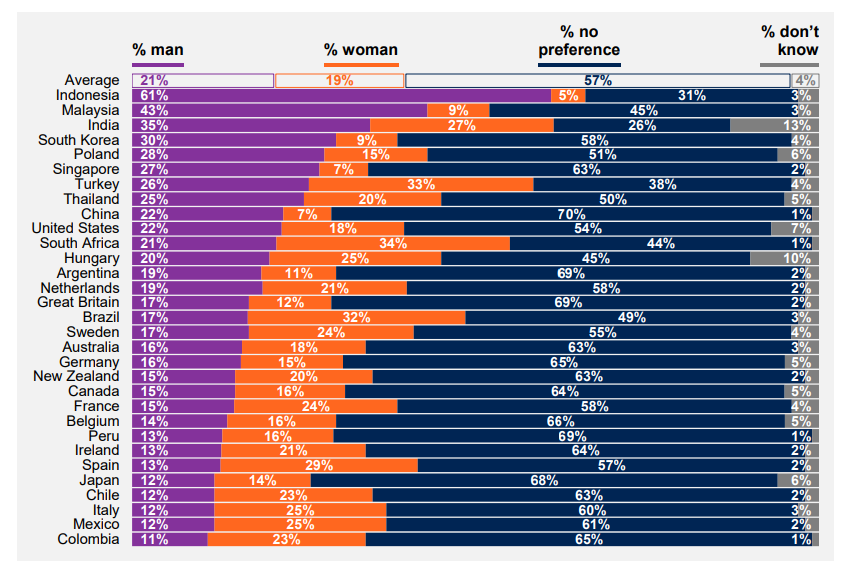- Joined
- Jul 25, 2008
- Messages
- 13,414
- Points
- 113
Quotes:
"More needs to be done...."
"More can be done..."
If no one resists them, the women's rights movement will want everything.
Quote: "... including women such as Dr Maggie Lim and Ms Constance Goh, who advanced women's reproductive health, or Ms Checha Davies and Madam Che Zahara, who championed women's rights."
Huh, who are they? What have they contributed to Singapore? Contributing to women's rights is not the same as contributing to the whole of society. Typical myopic and self-serving interest.
Quote: "As we honour and remember the prominent women in Singapore's past,..."
Have not seen many, if any, prominent women in SG's past. Do not include female ministers and President Halimah Yacob. They were fielded by the PAP to meet the gender quota. Do not think for a moment that they become ministers and President on merit.
Sep 25, 2021
The recent announcement by Prime Minister Lee Hsien Loong that a garden at Dhoby Ghaut Green will be dedicated to the women of Singapore came amid news of more policy changes and programmes to support women (Concrete proposals to tackle women's issues in the works, Sept 19).
Naming public spaces after women is a symbolic gesture of appreciation for women's efforts. It increases public consciousness of women's professional and cultural successes, which will inform and inspire future generations of girls and women.
I look forward to more public education that centres on women as an integral part of Singapore's narrative, including women such as Dr Maggie Lim and Ms Constance Goh, who advanced women's reproductive health, or Ms Checha Davies and Madam Che Zahara, who championed women's rights.
This must continue far beyond the Year of Celebrating SG Women.
More needs to be done to materially improve gender equality and equity in Singapore.
There are three ways to make a more immediate and tangible difference: introducing and strengthening legislation, changing societal norms and getting men to be more involved in the pursuit of gender equality.
Legislation can help, for example, by improving the wages of low-skilled workers in sectors with a high concentration of women, such as in food and beverage, and retail; introducing a temporary gender quota on the composition of company boards (to be lifted after the equal gender representation has been achieved); eradicating maternity discrimination; and making the criminal justice system more sensitive to survivors of sexual assault.
More emotional and financial support can be given to caregivers, who tend to be primarily female.
More can be done on a societal level to eradicate misogyny and re-evaluate traditional gender roles, perhaps through comprehensive sexuality education incorporating lessons about gender roles and dynamics.
Male advocates should be part of the discussion and fight for gender equality.
As we honour and remember the prominent women in Singapore's past, we should also turn our attention towards the women of today and tomorrow.
Khaing Su Wai
Communications executive
Association of Women for Action and Research
"More needs to be done...."
"More can be done..."
If no one resists them, the women's rights movement will want everything.
Quote: "... including women such as Dr Maggie Lim and Ms Constance Goh, who advanced women's reproductive health, or Ms Checha Davies and Madam Che Zahara, who championed women's rights."
Huh, who are they? What have they contributed to Singapore? Contributing to women's rights is not the same as contributing to the whole of society. Typical myopic and self-serving interest.
Quote: "As we honour and remember the prominent women in Singapore's past,..."
Have not seen many, if any, prominent women in SG's past. Do not include female ministers and President Halimah Yacob. They were fielded by the PAP to meet the gender quota. Do not think for a moment that they become ministers and President on merit.
Forum: Don't stop at street names, work on changing policies and social norms to improve gender equality
Sep 25, 2021
The recent announcement by Prime Minister Lee Hsien Loong that a garden at Dhoby Ghaut Green will be dedicated to the women of Singapore came amid news of more policy changes and programmes to support women (Concrete proposals to tackle women's issues in the works, Sept 19).
Naming public spaces after women is a symbolic gesture of appreciation for women's efforts. It increases public consciousness of women's professional and cultural successes, which will inform and inspire future generations of girls and women.
I look forward to more public education that centres on women as an integral part of Singapore's narrative, including women such as Dr Maggie Lim and Ms Constance Goh, who advanced women's reproductive health, or Ms Checha Davies and Madam Che Zahara, who championed women's rights.
This must continue far beyond the Year of Celebrating SG Women.
More needs to be done to materially improve gender equality and equity in Singapore.
There are three ways to make a more immediate and tangible difference: introducing and strengthening legislation, changing societal norms and getting men to be more involved in the pursuit of gender equality.
Legislation can help, for example, by improving the wages of low-skilled workers in sectors with a high concentration of women, such as in food and beverage, and retail; introducing a temporary gender quota on the composition of company boards (to be lifted after the equal gender representation has been achieved); eradicating maternity discrimination; and making the criminal justice system more sensitive to survivors of sexual assault.
More emotional and financial support can be given to caregivers, who tend to be primarily female.
More can be done on a societal level to eradicate misogyny and re-evaluate traditional gender roles, perhaps through comprehensive sexuality education incorporating lessons about gender roles and dynamics.
Male advocates should be part of the discussion and fight for gender equality.
As we honour and remember the prominent women in Singapore's past, we should also turn our attention towards the women of today and tomorrow.
Khaing Su Wai
Communications executive
Association of Women for Action and Research

